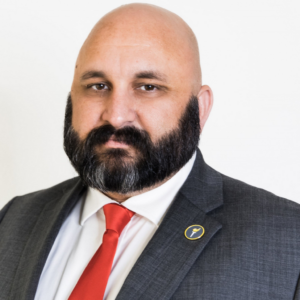My top three goals for the Libertarian Paty

In recent discussions, I’ve been asked about my vision for the Libertarian Party. However, it’s important to clarify that my current focus lies in vying for the position of Representative of Region 7 within the Libertarian National Convention. As an individual member, my influence is inherently constrained, yet there are pressing matters that I deem essential.
Foremost among these priorities is the imperative to reunite the Libertarian Party. Despite our modest size, we find ourselves fractured, with splinter groups or entirely separate parties emerging in states like Michigan, New Mexico, Virginia, Massachusetts, and Pennsylvania. Distressingly, rumblings of discontent echo from approximately five additional states, hinting at potential departures from the national party if grievances remain unaddressed. Currently, the Libertarian National Committee (LNC) inadvertently exacerbates discord, offering more trouble than value to many state affiliates. To mend these rifts, we must set aside pride and extend a conciliatory hand to estranged affiliates, fostering dialogue and facilitating reconciliation. In Michigan, for instance, it’s imperative to cease litigious pursuits that only deepen existing schisms and instead earnestly tackle underlying issues. To preempt further disaffiliation, we must establish transparent communication channels devoid of punitive measures, allowing for a constructive exchange of concerns and needs.
A second pivotal objective hinges on the democratic mandate conferred by the National Convention’s electorate. It is incumbent upon us to elect officers who authentically represent the diverse spectrum of our party. Subsequently, we must cultivate a culture of professionalism and mutual respect within the LNC. Despite shared ideological leanings, the current committee has been marred by internal divisiveness, a pattern not unfamiliar to its predecessors. Moving forward, we must commit to civil discourse, acknowledging that disagreement can coexist with camaraderie. By embracing inclusivity, even amid ideological variance, we fortify our collective resilience. This ethos extends to our state affiliates, where occasional discordance with the LNC’s direction necessitates empathetic engagement rather than exacerbating division.
Lastly, we must realign with the foundational objectives of the Libertarian Party. Our raison d’être encompasses the election of candidates, safeguarding and attaining ballot access, and disseminating the principles of Libertarianism to the public. Regrettably, recent endeavors have veered off course, diverting resources from these primary objectives. Streamlining our focus entails devolving certain responsibilities to state entities while rededicating ourselves to our core mandates. By recalibrating our priorities, we ensure a more judicious allocation of resources, optimizing our efficacy in advancing the party’s agenda.
My top three goals for the Libertarian Paty Read Post »




